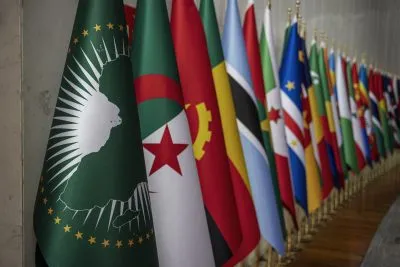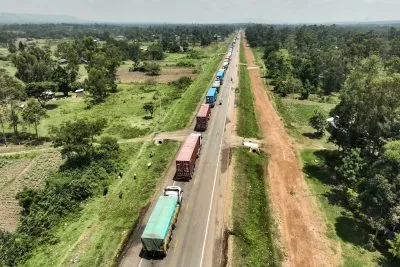As the amount of data collected by businesses across Africa grows, tools that can process this valuable asset and turn it into actionable information are becoming increasingly important for companies.
Big data solutions, including artificial intelligence, predictive analytics and machine learning, are able to sort through huge data sets and return commercially useful insights, which conventional technologies are unable to perform. According to a report from consulting firm Frost & Sullivan, the Middle East and Africa’s big data analytics market is forecast to grow by 28% every year until 2025, reaching revenue of $68bn.
Countless bytes of data are generated by humans every day through everything from online shopping to phone apps, watching on-demand TV to buying insurance. While much of this data is left unstructured or analysed, harvesting just a small section of relevant data can prove extremely valuable.
With the digitisation of everything from financial services to logistics to even the provision of public services, Africa is becoming more data-rich than ever
Celina Lee, CEO of African data science competition platform Zindi, believes that if African businesses want to operate more efficiently, extend their reach into different markets or scale their businesses, introducing big data solutions is critical.
“With the digitisation of everything from financial services to logistics to even the provision of public services, Africa is becoming more data-rich than ever, and it is up to the organisations to harness the value of this asset,” says Lee.
A potentially life-saving example of big data in action can be found in Cape Town, one of the most at-risk cities in South Africa for devastating wildfires. IBM Research is using a big data solution to improve the city’s wildfire assessment system.
The US firm has created a cognitive dashboard using data from The Weather Company and the city’s open data portal to better prepare the emergency response and deployment system. The programme hints at the huge commercial potential of harnessing data in providing services to governments and the private sector.
Unique challenges
Despite the promise of big data programmes to improve both the public and private sector, their true impact is limited by complex problems. One of the most severe issues is a lack of homegrown data science talent across the continent. Young Africans wanting to follow a career in data find it hard to access high-quality education and hands-on training.
“While there are a handful of university and non-university programmes, especially in countries like South Africa, Nigeria, and Kenya, in general there are not a lot of data science programmes in Africa,” explains Lee.
African businesses risk being left behind if they do not have people with the right skills needed to build big data products
Kelvin Wellington, a data scientist working at a bank in Ghana, says that the inadequate training in data-related subjects starts at primary and secondary school levels, particularly in coding and mathematics.
“African businesses risk being left behind if they do not have people with the right skills needed to build big data products,” he says. “The ability to harness data to make key decisions, pre-empt and mitigate disaster before it happens and identify opportunities for growth is essential for the African continent.”
Many of the issues dealt with by African businesses and governments when implementing big data projects are faced by organisations around the world, with research firm Gartner estimating that up to 85% of such projects fail to have the transformative impact leaders expect them to achieve. When forming big data programmes, businesses benefit from seeking partnerships with established organisations and institutions outside of the continent.
“Many of the global companies in the digital sector have poured billions of dollars into research and development. If the partnerships are structured responsibly, protecting our data effectively, Africa can take advantage of the innovation and focus on tailored execution in the region,” says Hendrik Malan, CEO at consultancy Frost & Sullivan Africa.
Commercial potential
It’s not only major international corporations which stand to benefit from big data initiatives. Smaller enterprises, local governments and non-profit organisations are all harnessing the power of data to transform how they operate.
From improving the accuracy of flood predictions in Malawi to helping the South African government better map the locations of informal settlements and allowing insurance firms to offer tailored services by anticipating the churn rate of customers, big data can change how people live and work.
Collecting and analysing big data can have wide commercial application. In-depth personalisation and accurate customer segmentation can be achieved by analysing troves of customer data. South Africa’s Vodacom gathers customer data by asking users which digital lifestyle they identify with before offering personalised bundles based on their usage and unique profile.
In countries where informal traders dominate the retail market, the gathering and analysing of mobile data can help to create a comprehensive picture of the preferences, perceptions and needs of consumers.
“With mobile penetration on the rise, it could provide insights to tailor offerings to the local market and fuel a stronger retail sector. If Africa is going to take advantage of intra-regional trade, we need a better understanding of the region’s requirements,” explains Malan.
In practice, monetising data can be problematic due to a patchwork of data storage and privacy laws that limit the transport of personal data outside of national borders. International social media giants such as Facebook are increasingly under the microscope for how they gather and exploit customer data. Many African countries currently only have rudimentary laws governing the gathering and exploitation of citizen and customer data.
Many big data initiatives also rely on the right combination of physical infrastructure, skilled workers and a clear strategy. Building data centres in African countries, instead of holding data offshore, will enable cutting-edge business applications to be used, says Ben Roberts, group chief technology and innovation officer at Liquid Telecom, an African broadband infrastructure company.
Nairobi-based Twiga Foods worked with Liquid Telecom to implement precision agriculture using the internet of things and enhancing it “with satellite weather data using technologies like AI and big data to improve yields and cut the cost of inputs in farming,” says Roberts.
The new diamond rush
While examples of projects already utilising big data are found across Africa, a tipping point is yet to be reached where these tools are commonplace. Even with the challenges facing big data, virtually every business can find a way to benefit from the insights gained by analysing data as the amount created by individuals continues to grow, say experts.
“We’ve made many mistakes exporting raw materials and then importing final products back into the region. We should not repeat the sins of the past and ship our data off to be beneficiated elsewhere,” concludes Malan. “Data is the diamond rush of the decade – we should treat it as such.”
Want to continue reading? Subscribe today.
You've read all your free articles for this month! Subscribe now to enjoy full access to our content.
Digital Monthly
£8.00 / month
Receive full unlimited access to our articles, opinions, podcasts and more.
Digital Yearly
£70.00 / year
Our best value offer - save £26 and gain access to all of our digital content for an entire year!
 Sign in with Google
Sign in with Google 



